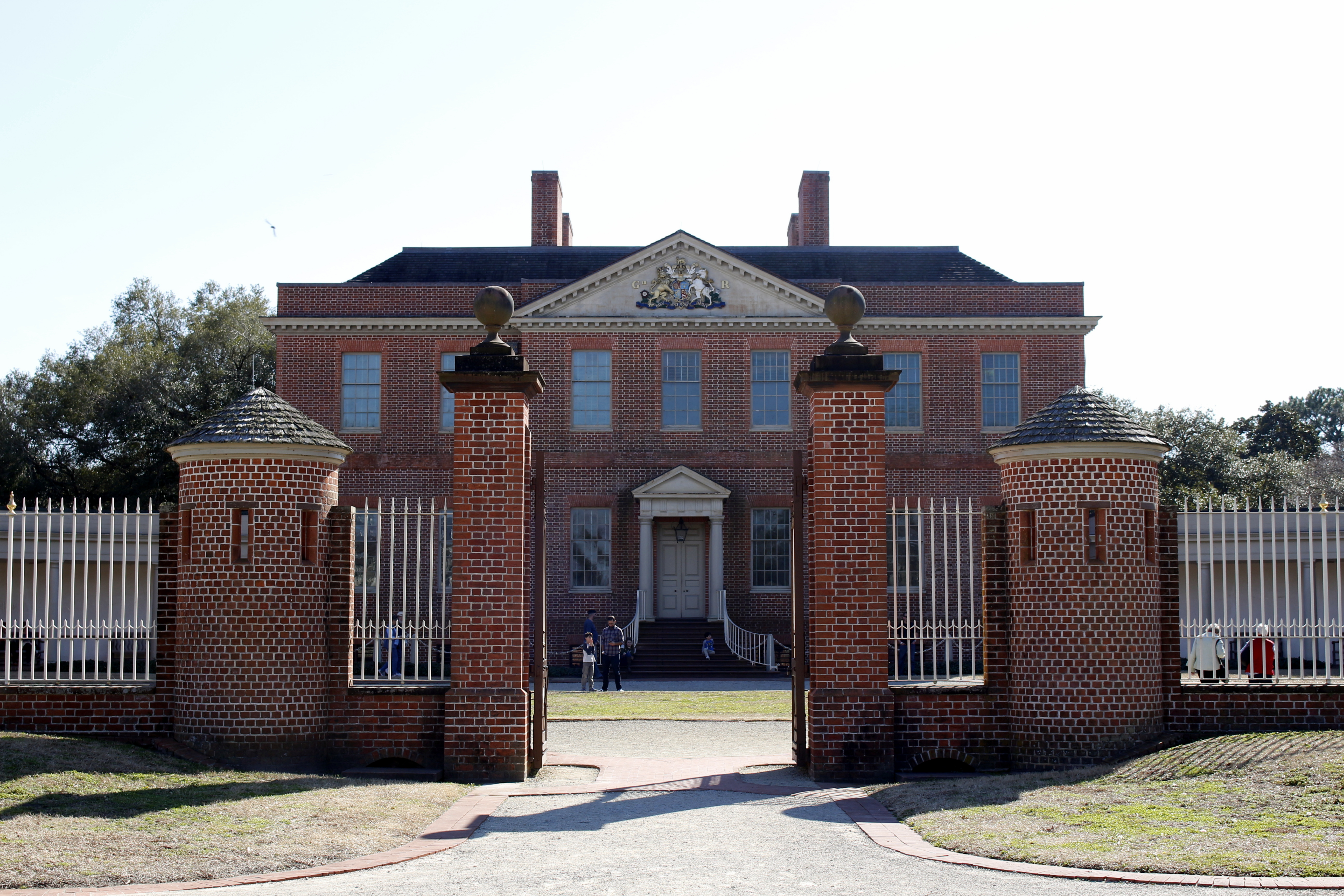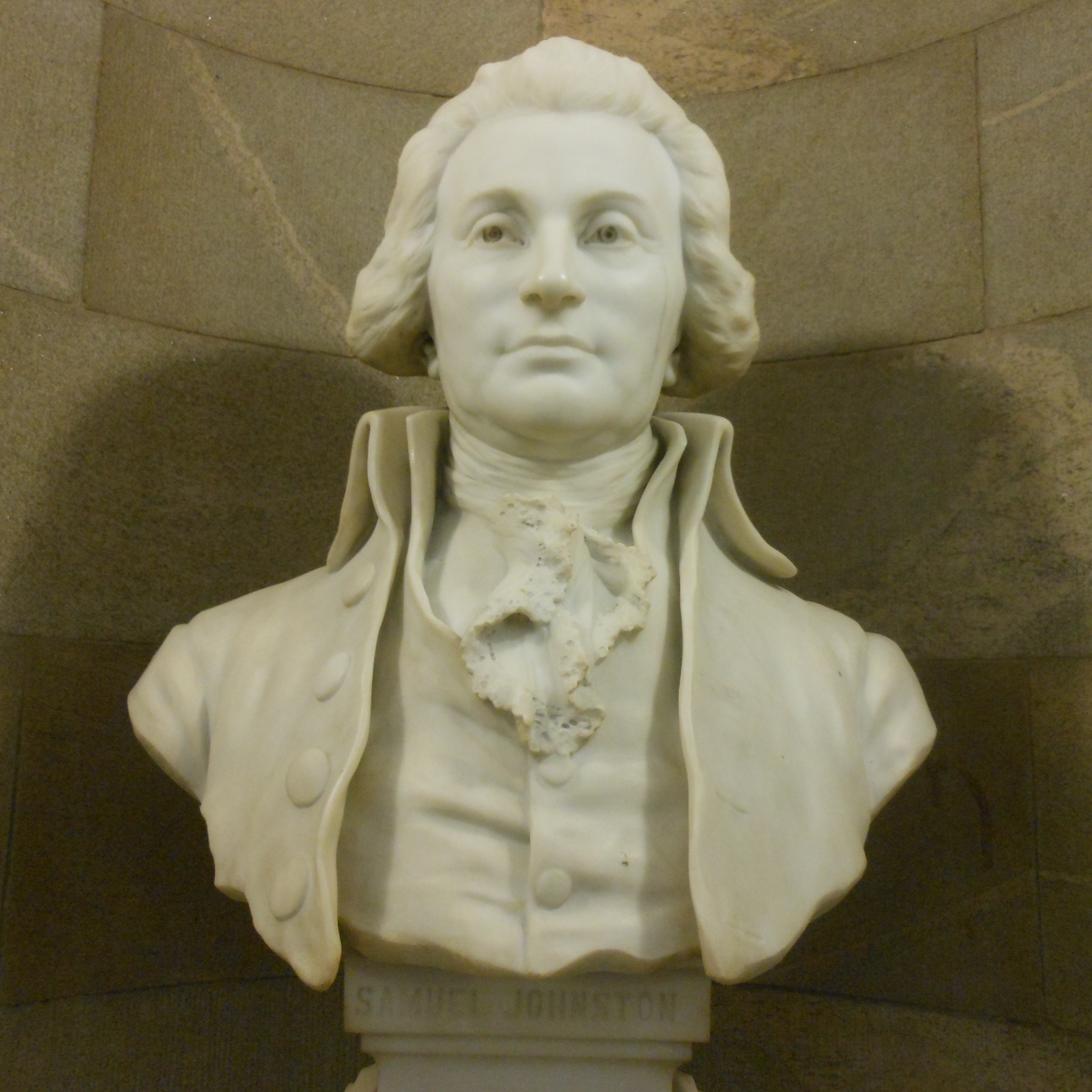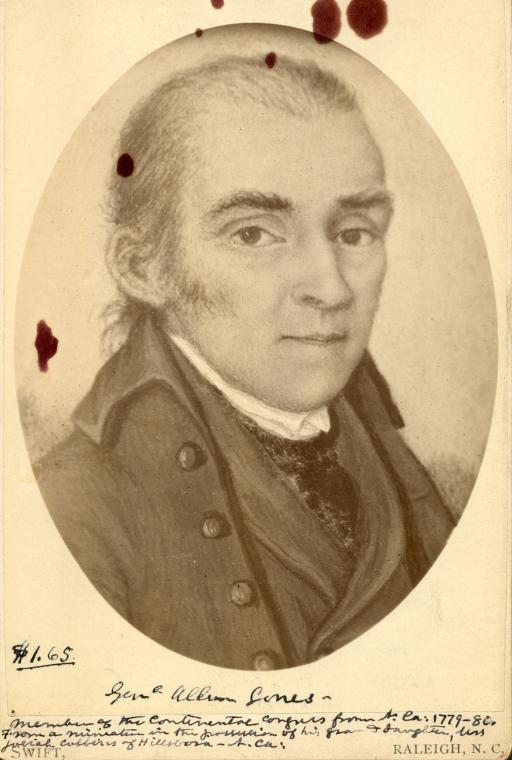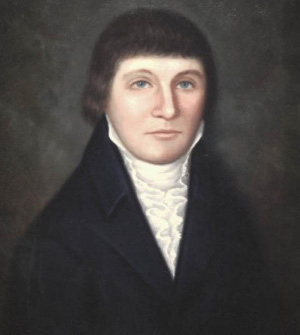North Carolina Provincial Congress on:
[Wikipedia]
[Google]
[Amazon]
The North Carolina Provincial Congresses were extra-legal unicameral legislative bodies formed in 1774 through 1776 by the people of the
 The first such congress met at the
The first such congress met at the
 The third congress met in Hillsborough, from August 20 to September 10, 1775. Its president was
The third congress met in Hillsborough, from August 20 to September 10, 1775. Its president was
 In the present day, the fourth North Carolina Provincial Congress is sometimes referred to as the "Halifax Assembly." The fourth congress, also presided over by Samuel Johnston, met in Halifax, from April 4 to May 14, 1776.
In the present day, the fourth North Carolina Provincial Congress is sometimes referred to as the "Halifax Assembly." The fourth congress, also presided over by Samuel Johnston, met in Halifax, from April 4 to May 14, 1776.
 The Fifth and last Provincial Congress met at Halifax from November 12 to December 23, 1776.
The Fifth and last Provincial Congress met at Halifax from November 12 to December 23, 1776.
Province of North Carolina
Province of North Carolina was a province of Kingdom of Great Britain, Great Britain that existed in North America from 1712(p. 80) to 1776. It was one of the five Southern Colonies, Southern colonies and one of the Thirteen Colonies, thir ...
, independent of the British colonial government. There were five congresses. They met in the towns of New Bern (1st and 2nd), Hillsborough (3rd), and Halifax (4th and 5th). The 4th conference approved the Halifax Resolves
The Halifax Resolves was a name later given to the resolution adopted by the North Carolina Provincial Congress on April 12, 1776. The adoption of the resolution was the first official action in the American Colonies calling for independence from ...
, the first resolution of one of Thirteen Colonies
The Thirteen Colonies, also known as the Thirteen British Colonies, the Thirteen American Colonies, or later as the United Colonies, were a group of Kingdom of Great Britain, British Colony, colonies on the Atlantic coast of North America. Fo ...
to call for independence from Great Britain. Five months later it would empower the state's delegates to the Second Continental Congress
The Second Continental Congress was a late-18th-century meeting of delegates from the Thirteen Colonies that united in support of the American Revolutionary War. The Congress was creating a new country it first named "United Colonies" and in 1 ...
to concur to the United States Declaration of Independence
The United States Declaration of Independence, formally The unanimous Declaration of the thirteen States of America, is the pronouncement and founding document adopted by the Second Continental Congress meeting at Pennsylvania State House ...
. The 5th conference approved the Constitution of North Carolina
The Constitution of the State of North Carolina governs the structure and function of the state government of North Carolina, one of the United States; it is the highest legal document for the state and subjugates North Carolina law. All U.S. st ...
and elected Richard Caswell
Richard Caswell (August 3, 1729November 10, 1789) was an American politician and lawyer who served as the List of Governors of North Carolina, first and fifth Governor of North Carolina, governor of the U.S. state, state of North Carolina from 1 ...
as governor of the State of North Carolina. After the 5th conference, the new North Carolina General Assembly
The North Carolina General Assembly is the Bicameralism, bicameral legislature of the Government of North Carolina, State government of North Carolina. The legislature consists of two chambers: the North Carolina Senate, Senate and the North Ca ...
met in April 1777.
Congresses
Five extra-legal unicameral bodies called the North Carolina Provincial Congresses met beginning in the summer of 1774. They were modeled after the colonial lower house (House of Commons). These congresses created a government structure, issued bills of credit to pay for the movement, organized an army for defense, wrote a constitution and bill of rights that established the state of North Carolina, and elected their first acting governor in the fifth congress that met in 1776. These congresses paved the way for the first meeting of theNorth Carolina state Legislature
The North Carolina General Assembly is the bicameral legislature of the State government of North Carolina. The legislature consists of two chambers: the Senate and the House of Representatives. The General Assembly meets in the North Carolina ...
on April 7, 1777, in New Bern, North Carolina
New Bern, formerly called Newbern, is a city in Craven County, North Carolina, United States. As of the 2010 census it had a population of 29,524, which had risen to an estimated 29,994 as of 2019. It is the county seat of Craven County and t ...
.
First Provincial Congress
Tryon Palace
Tryon Palace, formerly called Governor's Palace, Newbern, was the official residence and administrative headquarters of the British governors of North Carolina from 1770 to 1775. Located in New Bern, North Carolina, the palace was often at the ...
in New Bern
New Bern, formerly called Newbern, is a city in Craven County, North Carolina, United States. As of the 2010 census it had a population of 29,524, which had risen to an estimated 29,994 as of 2019. It is the county seat of Craven County and t ...
, from August 25 to 27, 1774. It was the first such gathering anywhere in the Thirteen Colonies
The Thirteen Colonies, also known as the Thirteen British Colonies, the Thirteen American Colonies, or later as the United Colonies, were a group of Kingdom of Great Britain, British Colony, colonies on the Atlantic coast of North America. Fo ...
held in defiance of British orders.
Its moderator (president) was John Harvey John Harvey may refer to:
People Academics
* John Harvey (astrologer) (1564–1592), English astrologer and physician
* John Harvey (architectural historian) (1911–1997), British architectural historian, who wrote on English Gothic architecture ...
, who was concurrently the last speaker
Speaker may refer to:
Society and politics
* Speaker (politics), the presiding officer in a legislative assembly
* Public speaker, one who gives a speech or lecture
* A person producing speech: the producer of a given utterance, especially:
** I ...
of the Province of North Carolina General Assembly of 1775 House of Burgesses.
This first provincial congress, with 69 delegates from 30 of the then-36 counties, approved the calling of a Continental Congress
The Continental Congress was a series of legislative bodies, with some executive function, for thirteen of Britain's colonies in North America, and the newly declared United States just before, during, and after the American Revolutionary War. ...
and elected William Hooper
William Hooper (June 28, 1742 October 14, 1790) was an American Founding Father, lawyer, and politician. As a member of the Continental Congress representing North Carolina, Hooper signed the Continental Association and the Declaration of ...
, Joseph Hewes
Joseph Hewes (July 9, 1730– November 10, 1779) was an American Founding Father, a signer of the Continental Association and U.S. Declaration of Independence, and a native of Princeton, New Jersey, where he was born in 1730. Hewes's parents were ...
, and Richard Caswell
Richard Caswell (August 3, 1729November 10, 1789) was an American politician and lawyer who served as the List of Governors of North Carolina, first and fifth Governor of North Carolina, governor of the U.S. state, state of North Carolina from 1 ...
as the colony's delegates thereto. The congress also approved a trade boycott
A boycott is an act of nonviolent, voluntary abstention from a product, person, organization, or country as an expression of protest. It is usually for moral, social, political, or environmental reasons. The purpose of a boycott is to inflict som ...
to protest British
British may refer to:
Peoples, culture, and language
* British people, nationals or natives of the United Kingdom, British Overseas Territories, and Crown Dependencies.
** Britishness, the British identity and common culture
* British English, ...
actions against New England
New England is a region comprising six states in the Northeastern United States: Connecticut, Maine, Massachusetts, New Hampshire, Rhode Island, and Vermont. It is bordered by the state of New York to the west and by the Canadian provinces ...
.
Second Provincial Congress
The second congress also met at New Bern, from April 3 to 7, 1775. John Harvey once again served as moderator. The congress met at the same place and almost the same time as the colonial assembly, and had almost exactly the same membership. This infuriated the royal governor,Josiah Martin
Josiah Martin (23 April 1737 – 13 April 1786) was a British Army officer and colonial official who served as the ninth and last British governor of North Carolina from 1771 to 1776.
Early life and career
Martin was born in Dublin, Ireland, ...
, who dissolved the colonial legislature on April 8 and never called another. This congress approved the Continental Association
The Continental Association, also known as the Articles of Association or simply the Association, was an agreement among the American colonies adopted by the First Continental Congress on October 20, 1774. It called for a trade boycott against ...
, an economic boycott of Great Britain authorized by the First Continental Congress
The First Continental Congress was a meeting of delegates from 12 of the 13 British colonies that became the United States. It met from September 5 to October 26, 1774, at Carpenters' Hall in Philadelphia, Pennsylvania, after the British Navy ...
. Just after this congress met, news reached North Carolina about the Battle of Lexington and Concord
The Battles of Lexington and Concord were the first military engagements of the American Revolutionary War. The battles were fought on April 19, 1775, in Middlesex County, Province of Massachusetts Bay, within the towns of Lexington, Concord, ...
in Massachusetts. Following this news, Governor Josiah Martin
Josiah Martin (23 April 1737 – 13 April 1786) was a British Army officer and colonial official who served as the ninth and last British governor of North Carolina from 1771 to 1776.
Early life and career
Martin was born in Dublin, Ireland, ...
fled and this ended the royal government in the Province. The first military action occurred on July 18 when patriots burned Fort Johnston, where Governor Martin had transferred his headquarters.
Third Provincial Congress
Samuel Johnston
Samuel Johnston (December 15, 1733 – August 17, 1816) was an American planter, lawyer, and statesman from Chowan County, North Carolina, Chowan County, North Carolina. He represented North Carolina in both the Continental Congress and the Un ...
(Harvey had recently died). This congress, which included representatives of every county and town, officially established itself as the highest governmental body in the province (British Governor Martin had fled, ending royal government).
To govern North Carolina when the congress was not in session, a 13-member Provincial Council, or Council of Safety, was elected, constituting the first executive body in North Carolina free of British rule. Cornelius Harnett
Cornelius Harnett (April 10, 1723 – April 28, 1781) was an American Founding Father, merchant, and politician from Wilmington, North Carolina. He was a leading American Revolutionary statesman in the Cape Fear region, and a delegate for North ...
was elected as the first president of the council. The congress divided the state into six military districts for purposes of organizing militia and for determining representation on the Council. These districts included Edenton, Halifax, Hillsborough, New Bern, Salisbury
Salisbury ( ) is a cathedral city in Wiltshire, England with a population of 41,820, at the confluence of the rivers Avon, Nadder and Bourne. The city is approximately from Southampton and from Bath.
Salisbury is in the southeast of Wil ...
, and Wilmington. Later, an additional district, Morgan, was added for the western part of the state, including counties that eventually became part of Tennessee (Davidson, Greene, and Washington).
Fourth Provincial Congress
 In the present day, the fourth North Carolina Provincial Congress is sometimes referred to as the "Halifax Assembly." The fourth congress, also presided over by Samuel Johnston, met in Halifax, from April 4 to May 14, 1776.
In the present day, the fourth North Carolina Provincial Congress is sometimes referred to as the "Halifax Assembly." The fourth congress, also presided over by Samuel Johnston, met in Halifax, from April 4 to May 14, 1776. Allen Jones Allen Jones may refer to:
*Allen Jones (Continental Congress) (1739–1798), Continental Congress delegate
*Allen Jones (artist) (born 1937), British pop artist
*Allen Jones (record producer) (1940–1987), American record producer
* A.J. Styles (A ...
served as vice-president.
This congress passed what became known as the Halifax Resolves
The Halifax Resolves was a name later given to the resolution adopted by the North Carolina Provincial Congress on April 12, 1776. The adoption of the resolution was the first official action in the American Colonies calling for independence from ...
, the first "official" endorsement of independence from Great Britain by one of the Thirteen Colonies
The Thirteen Colonies, also known as the Thirteen British Colonies, the Thirteen American Colonies, or later as the United Colonies, were a group of Kingdom of Great Britain, British Colony, colonies on the Atlantic coast of North America. Fo ...
. Joseph Hewes presented the Halifax Resolves to the Continental Congress on May 27, the same day that Virginia delegates presented similar resolves.
Fifth Provincial Congress
 The Fifth and last Provincial Congress met at Halifax from November 12 to December 23, 1776.
The Fifth and last Provincial Congress met at Halifax from November 12 to December 23, 1776. Richard Caswell
Richard Caswell (August 3, 1729November 10, 1789) was an American politician and lawyer who served as the List of Governors of North Carolina, first and fifth Governor of North Carolina, governor of the U.S. state, state of North Carolina from 1 ...
served as president, with Cornelius Harnett
Cornelius Harnett (April 10, 1723 – April 28, 1781) was an American Founding Father, merchant, and politician from Wilmington, North Carolina. He was a leading American Revolutionary statesman in the Cape Fear region, and a delegate for North ...
as vice-president.
This congress approved the first Constitution of North Carolina
The Constitution of the State of North Carolina governs the structure and function of the state government of North Carolina, one of the United States; it is the highest legal document for the state and subjugates North Carolina law. All U.S. st ...
, along with a "Declaration of Rights." It elected Caswell to serve as acting governor
A governor is an administrative leader and head of a polity or political region, ranking under the head of state and in some cases, such as governors-general, as the head of state's official representative. Depending on the type of political ...
until the province's first General Assembly could meet to elect a governor.
See also
*Constitution of North Carolina
The Constitution of the State of North Carolina governs the structure and function of the state government of North Carolina, one of the United States; it is the highest legal document for the state and subjugates North Carolina law. All U.S. st ...
* Fayetteville Convention
The Fayetteville Convention was a meeting by 271 delegates from North Carolina to ratify the US Constitution. Governor Samuel Johnston presided over the convention, which met in Fayetteville, North Carolina, from November 16 to 23, 1789 to debate ...
of 1789 (ratified the U.S. Constitution
The Constitution of the United States is the supreme law of the United States of America. It superseded the Articles of Confederation, the nation's first constitution, in 1789. Originally comprising seven articles, it delineates the natio ...
)
* Hillsborough Convention
The Hillsborough Convention, was the first of two North Carolina conventions to ratify the United States Constitution. Delegates represented 7 boroughs and 59 counties, including six western counties that became part of Tennessee when it was creat ...
of 1788
* List of North Carolina state legislatures
The North Carolina General Assembly of the U.S. state of North Carolina has convened many times since the state declared its independence from the British Crown and established a Constitution of North Carolina, constitution in December 1776 duri ...
* North Carolina General Assembly of 1777
* Provincial Congress
The Provincial Congresses were extra-legal legislative bodies established in ten of the Thirteen Colonies early in the American Revolution. Some were referred to as congresses while others used different terms for a similar type body. These bodies ...
References
Further reading
* * * {{Authority control North Carolina in the American Revolution 1774 establishments in North Carolina 1776 disestablishments in North Carolina Government of North CarolinaNorth Carolina
North Carolina () is a state in the Southeastern region of the United States. The state is the 28th largest and 9th-most populous of the United States. It is bordered by Virginia to the north, the Atlantic Ocean to the east, Georgia and So ...